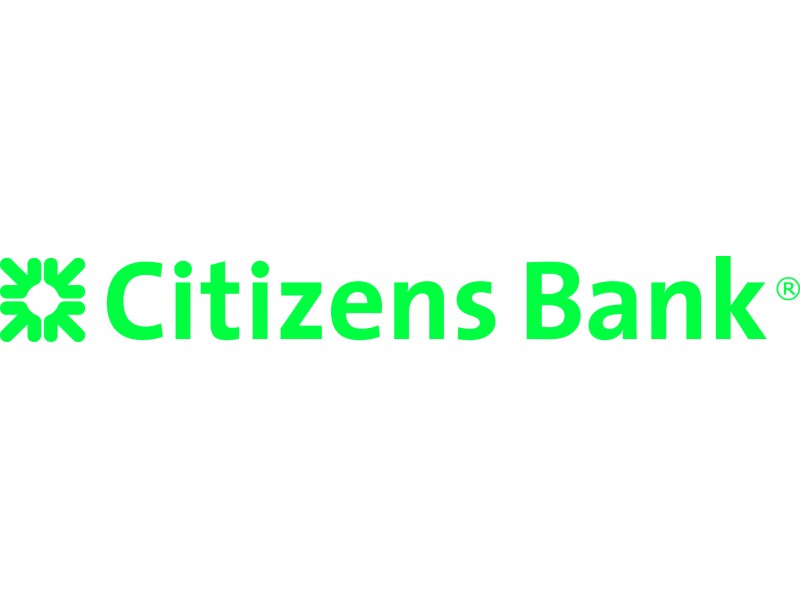
Flagstar Bancorp, Inc. operates as the holding company for Flagstar Bank, a federally chartered stock savings bank. Flagstar is the largest publicly traded savings bank headquartered in the midwest United States. Flagstar is also a leading mortgage lender and a national leader in the wholesale mortgage business. The bank was chartered in 1987 under the name First Security Savings Bank, FSB. A small savings bank in nearby Jackson, Michigan, Security Savings Bank, was purchased in 1994. The banking charters of First Security Savings Bank and Security Savings Bank were merged in 1996, and the bank was renamed Flagstar. An initial public offering for Flagstar Bancorp, Inc. common stock was held in April 1997, and listed on the NASDAQ Stock Market under the symbol FLGS. The company's securities' listings moved to the NYSE on July 13, 2001 and trades under the ticker symbol FBC.
As of December 31, 2011, Flagstar operated 113 branches in Michigan, having sold their branches in both Indiana and Georgia in order to focus on their core markets. On December 2, 2011, all 22 Flagstar branches located in Indiana were sold to First Financial Bank (Ohio). Similarly, on December 9, 2011, all 27 Flagstar branches located in Georgia were sold to PNC Financial Services. Additionally, Flagstar operated 27 home loan centers in 13 states, and a total of four commercial banking offices in Massachusetts, Connecticut, and Rhode Island. The company also originates a number of mortgages across the United States through its internet banking branch. Principal corporate offices are located in Troy, Michigan with regional offices in Dunwoody, Georgia and Bellevue, Washington. The bank is a principal co-sponsor of the Detroit Free Press/Flagstar Bank International Marathon and also sponsors several other events nationally.
MatlinPatterson Global Advisors Investment/TARP participation
In January 2009, Flagstar was able to raise $523 million of investment capital from three sources. These included $250 million from MatlinPatterson Global Advisors, $266 million from the U.S. Treasury's Troubled Asset Relief Program Capital Purchase Program and $5.23 million from management. This was in effect a rescue to restore liquidity to the bank and allow them to cover mortgage related losses incurred in their loan portfolio. This initial investment by MatlinPatterson was followed up shortly after with an additional $100 million investment to cover deepening losses. A summary of MatlinPatterson's Flagstar investments follows (note, Flagstar had approximately 8 million shares outstanding prior to these investments, adjusted for the 1:10 reverse stock split in 2010):
- December 2008, purchased 31,250,000 shares for $8/share
- January 2009, purchased 12,500,00 shares for $8/share
- January 2010, purchased 42,253,521 shares for $7.10/share in a special Rights Offering
- March 2010, purchased 20,000,000 shares for $5/share in a secondary offering
- October 2010, purchased 250,000,000 shares for $1/share in a private offering (this was completed in multiple parts via convertible shares later converted to common after a shareholder vote was held and approved to increase the allowable number of outstanding common shares)
Additional capital was raised from current shareholders in the "Rights Offering" and from private equity in the "Private Placement Offering" (see above). Of note, David Einhorn (hedge fund manager) in early 2010 purchased approximately $16 million of Flagstar stock and later liquidated his position in early 2011. In 2010, the stock traded as high as $10 and closed the year below $2. The effect of these investments and issuance of new shares had a dilution impact of more than 70-fold on legacy shareholders ("Legacy" references Shareholders prior to 2008). Shares outstanding rose from less than 8 million to over 555 million. Without these investments, the bank would have been deemed distressed or insolvent and been required to sell itself or fallen into receivership. Equity participation in addition to TARP was a contingent factor in TARP approval and it was unlikely the government would have approved their TARP application otherwise. As of April 2012, Flagstar has yet to repay their TARP obligation.
Following the stock market close on October 10, 2012, the company effected its second 1:10 reverse stock split per prior recommendation of the Flagstar Board of Directors and shareholder approval at the annual meeting. This action brings Flagstar's stock back into compliance with NYSE minimum share price requirements and avoids delisting. (Financials in this article have not yet been adjusted for this second reverse split.)
Change in Management

On October 1, 2009, Flagstar's Board of Directors elected Joseph P. Campanelli to be President and Chief Executive Officer, replacing Mark T. Hammond. Prior to Flagstar, Campanelli worked at Sovereign Bancorp, Inc. Thomas J. Hammond founded Flagstar in 1987 and served as Chairman of the Board since 1993. Mark T. Hammond served as Vice Chairman of the Board also since 1993.
On October 2, 2012, Flagstar Bancorp announced that Campanelli is resigning as of October 31 as president and CEO of Flagstar Bancorp to pursue other interests. The Board of Directors appointed Michael Tierney president immediately and will become CEO effective October 31, 2012. Prior, Mr. Tierney served as Executive Vice President and Managing Director of Personal Financial Services at Flagstar since February 2011.
Caught up in the financial crisis
In mid-August 2009 the bank was named as one of the biggest and worst off of more than 150 U.S. lenders which own nonperforming loans that equal 5 percent or more of their holdings. 5 percent is a threshold that former regulators have stated can wipe out a bank’s equity and threaten its survival. Flagstar's nonperforming portfolio was more than 10 percent.
Predatory Lending and Mortgage Fraud

On February 24, 2012, the U.S. Department of Justice ("DOJ") filed a complaint in the United States District Court for the Southern District of New York, Case No. 12-cv-01392, against the Company alleging that for over a decade Flagstar had been improperly approving thousands of residential home mortgage loans for government insurance. Specifically, the DOJ alleges that the Company: (i) used unauthorized staff employees in the loan approval process; (ii) paid substantial incentive awards to these unauthorized employees for exceeding certain quotas; (iii) permitted underwriters to submit false certifications to the Federal Housing Administration ("FHA") and the U.S. Department of Housing and Urban Development ("HUD"); and (iv) misled FHA and HUD by certifying that the loans had been fully underwritten by properly registered and sufficiently experienced underwriters when they had not. The DOJ further alleges that as a result of the foregoing, thousands of loans were approved for government insurance that did not qualify for insurance and when the loans defaulted, HUD was forced to cover the losses.
On March 13, 2012 it was announced that shareholder rights firm Robbins Umeda LLP was investigating possible breaches of fiduciary duty and other violations of the law by certain officers and directors at Flagstar Bancorp, Inc.
In particular, the firm investigated allegations that Flagstar violated the False Claims Act when it improperly endorsed federally-insured mortgage loans that eventually defaulted and falsely certified its loan underwriting practices to federal housing authorities. On February 24, 2012, the U.S. Department of Justice filed a complaint against Flagstar, which alleges that Flagstar utilized under-qualified underwriting assistants to approve thousands of residential home mortgage loans for Federal Housing Administration insurance. The complaint also alleges that Flagstar improperly set daily quotas for the underwriting assistants and paid them substantial incentive awards for exceeding their quotas. While engaging in this scheme, the officers and directors of the company not only exposed Flagstar to significant liability, but represented to the investing public that Flagstar was operating in compliance with all applicable laws and regulations.
Financials

2011
- Net Earnings (thousands): $(165,643)
- Earnings Per Share (Basic): $(0.30)
- Total Assets (millions): $13,637
- Shares outstanding at year-end (millions): 555.776
- Return of average equity: N/A
2010
- Net Earnings (thousands): $(393,561)
- Earnings Per Share (Basic): $(2.44)
- Total Assets (millions): $13,643
- Shares outstanding at year-end (millions): 553.313
- Return of average equity: N/A
2009
- Net Earnings (thousands): $(513,802)
- Earnings Per Share (Basic): $(16.20)
- Total Assets (millions): $14,013
- Shares outstanding at year-end (millions): 46.8771
- Return of average equity: N/A
2008
- Net Earnings (thousands): $(257,268)
- Earnings Per Share (Basic): $(35.70)
- Total Assets (millions): $14,210
- Shares outstanding at year-end (millions): 8.3627
- Return of average equity: N/A
2007
- Net Earnings (thousands): $(39,225)
- Earnings Per Share (Basic): $(6.40)
- Total Assets (millions): $15,793
- Shares outstanding at year-end (millions): 6.0271
- Return of average equity: 5.14%
2006
- Net Earnings (thousands): $75,202
- Earnings Per Share (Basic): $11.80
- Total Assets (millions): $15,497
- Return of average equity: 9.42%
2005
- Net Earnings (thousands): $79,865
- Earnings Per Share (Basic): $12.90
- Total Assets (millions): $15,075.0
- Return of average equity: 10.66%
2004
- Net Earnings (thousands): $142,738
- Earnings Per Share (Basic): $23.40
- Total Assets (millions): $13,143
- Return of average equity: 20.60%
NOTE: Historical per share numbers are adjusted for a 1:10 reverse stock split of Flagstar (FBC) common stock effective May 28, 2010
Post a Comment